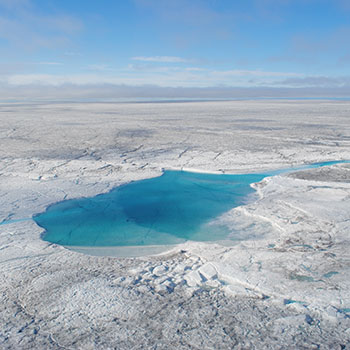The evidence of global warming is in no place more obvious than in the Arctic region. The Arctic has warmed rapidly during the last four decades. The magnitude of temperature increase in the Arctic is twice as large as the global increase. The effect of Arctic climate change will have profound local, regional and global implications.
In 2004 and 2005 the Arctic Council and the International Arctic Science Committee presented the Arctic Climate Impact Assessment (ACIA). Observations since then have confirmed the basic findings of the assessment, although some changes, such as loss of summer sea ice cover, are happening faster and are more significant than foreseen only 5 years ago.
Sea ice, snow cover, glaciers and permafrost are all diminishing due to Arctic warming. Vulnerable ecosystems in the Arctic are under threat. Climate change causes rapidly changing living conditions for 4 million Arctic inhabitants. Hunting, fishing and herding activities are threatened by changes in snow and ice conditions. Traditional livelihoods of Indigenous Peoples in the Arctic are at risk.
The accelerating loss of ice from the Greenland ice sheet contributes to global sea level rise. Recent models project a rise of global sea level of as much as one meter by the end of this century. A rise of that magnitude will have severe consequences for our planet.
Combating climate change is an urgent common challenge for the international community and requires immediate global action.
(CANADA, THE KINGDOM OF DENMARK, FINLAND, ICELAND, NORWAY, RUSSIAN FEDERATION, SWEDEN, UNITED STATES of AMERICA STATEMENT TO UNFCCC COP XVI, December 2010)

